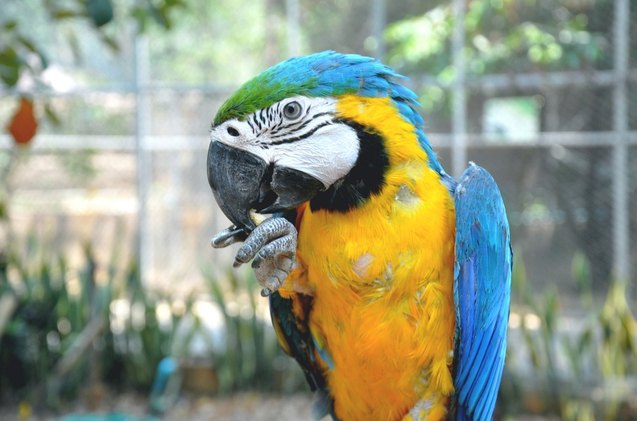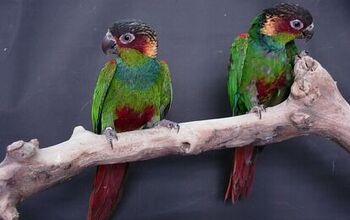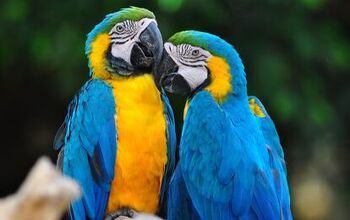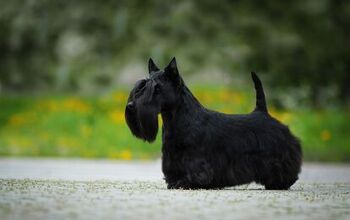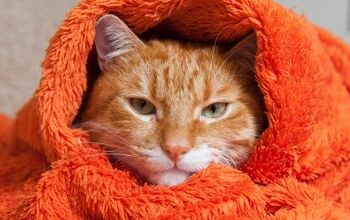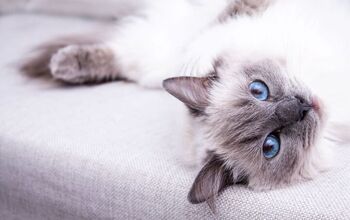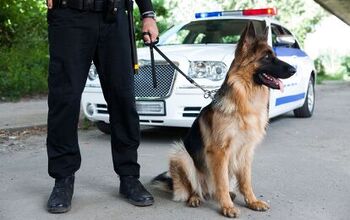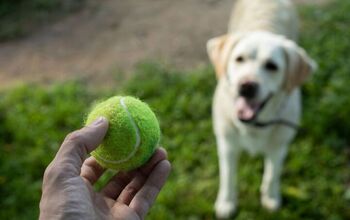Blue Throated Macaw


About Blue Throated Macaw
The Blue Throated Macaw is one of the rarest breeds in this popular and iconic species. They are native only to a small region in central Bolivia where these birds are considered critically endangered. With continued and dedicated efforts, these macaws are being preserved in captivity as well as rare and precious pet birds. Nicknamed “Barba Azul,” meaning “The Blue Beard,” this bird is considered a national symbol of Bolivia, where it is also protected by law.
Rare as it is in the wild, the Blue Throated Macaw is still enduring in captivity, where it is considered a precious pet bird.
Native Region/Natural Habitat
Although Macaws are generally considered to be a symbol of South American rainforests, this breed is endemic exclusively to the wilderness of Bolivia’s Llanos de Moxos region, where the remaining population of Blue Throated Macaws numbers merely around 400 birds. This low number is a direct result of rarity, illegal trapping, and hunting by native tribes, who prize their feathers as valuable headdress material.
These are large birds. Combined with the long tail feathers, their overall size is up to 33 inches, or 85 centimeters. Another impressive feature is their wingspan of little over 3 feet (1m). Their weight is around 2 lbs on average, although the females can be slightly smaller and lighter. In general, these macaws are slightly smaller than their many cousins.
Blue Throated Macaws are quite vocal in certain situations. When alarmed or in any way startled, they will produce loud sounds. In most normal circumstances though, these macaws share similar behaviors as other birds in the species. They will sometimes mimic sounds and words and emit caws as most macaws do. But this doesn’t mean these birds are loud and noisy- they are actually quite docile and quiet, and can be kept in an apartment.
Vibrant, exotic colors are the pride of every macaw. For the Blue Throated macaws, the dominant color is blue, sometimes close to aquamarine. It covers their heads, cheeks, back, and wings. Their bellies and sides of the head sport a vibrant yellow color. Another distinctive part is the blue “collar” around the throat, giving them their name. These vivid colors present a beautiful combination and make these gorgeous birds genuinely stand out, even compared to other brightly colored macaws.
The vibrant coloration of these birds is a sight to behold!
There are plenty of bird food brands out there that offer seed mixes specifically prepared for macaws. These will do fine, although you shouldn’t hesitate to offer your pet some nutritious fruits and veggies to enrich their diet. A steady supply of raw fruits and vegetables will provide additional proteins that they need to maintain a healthy life.
Blue Throated Macaws need regular baths and, more often than not, love to splash around in the water. Mist them often with room temperature water or make them their very own tub: fill a bowl with tepid water where your parrot can bathe freely. Alternatively, you can get them in the shower, in case they display no interest in getting into a bowl of water. Regular bathing will prevent their feathers from drying out and cause itching and potential problems.
Most macaws will rarely fall ill if they are cared for properly. They are robust and hardy birds, and with some looking after they can reach up to 50 years of age without many serious troubles. As a precaution, be on the lookout for some of these symptoms that could indicate potential problems: rasping, difficult breathing; swollen eyes, apathy, picking feathers, etc.
Blue Throated Macaws are healthy and hardy. With sufficient care, they will live a long and happy life.
These macaws are good pet birds. If something is out of the ordinary they will caw loudly to signify danger. But most of the time they are gentle, playful and quiet. Mellow and friendly, these smart parrots will love to socialize with their owners: in fact, lack of attention can cause various behavior issues.
The Blue Throated Macaw needs plenty of room, so provide them with a large cage (or enclosure) and a chance to fly about the house. Blue Throated Macaws are playful by nature and will love the toys you give them. They’ll most likely ruin them, though, since they like using their large and powerful beaks. Just make sure to give them a chance to socialize, play and explore. A bored macaw is can quickly become depressed, which will lead to various health issues.
Photo credit: buddhawut/Shutterstock; Bram van Broekhoven/Shutterstock; Atthapol Saita/Shutterstock

A proud mama to seven dogs and ten cats, Angela spends her days writing for her fellow pet parents and pampering her furballs, all of whom are rescues. When she's not gushing over her adorable cats or playing with her dogs, she can be found curled up with a good fantasy book.
More by Angela Vuckovic



